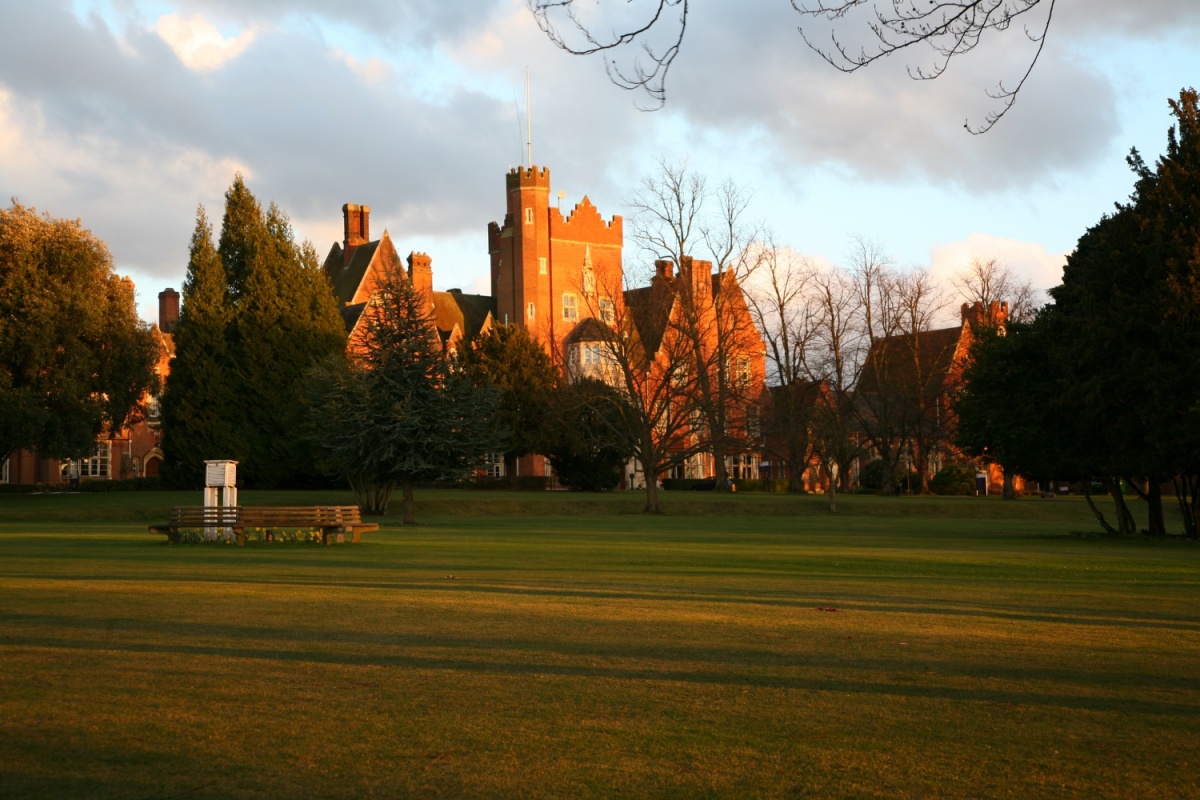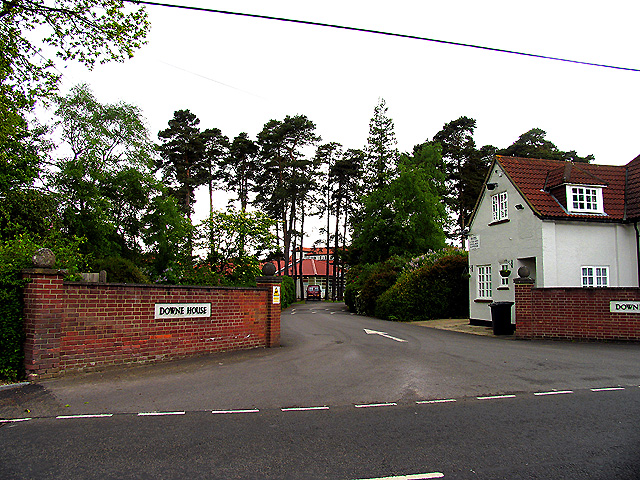|
Venetia Burney
Venetia Katharine Douglas Burney (married name Phair, 11 July 1918 – 30 April 2009) was an English accountant and teacher. She is remembered as the first person to suggest the name Pluto for the dwarf planet discovered by Clyde Tombaugh in 1930. At the time, she was 11 years old. Biography Venetia Burney was the daughter of Rev. Charles Fox Burney, Oriel Professor of the Interpretation of Holy Scripture at Oxford, and his wife Ethel Wordsworth Burney (née Madan). She was the granddaughter of Falconer Madan (1851–1935), Librarian of the Bodleian Library of the University of Oxford. Falconer Madan's brother, Henry Madan (1838–1901), Science Master of Eton, had in 1878 suggested the names Phobos and Deimos for the moons of Mars. On 14 March 1930, Falconer Madan read the story of the new planet's discovery in ''The Times'', and mentioned it to his granddaughter Venetia. She suggested the name Pluto – the Roman God of the Underworld who was able to make himself invisibl ... [...More Info...] [...Related Items...] OR: [Wikipedia] [Google] [Baidu] |
Banstead
Banstead is a town in the borough of Reigate and Banstead in Surrey, England. It is south of Sutton, south-west of Croydon, south-east of Kingston-upon-Thames, and south of Central London. On the North Downs, it is on three of the four main compass points separated from other settlements by open area buffers with Metropolitan Green Belt status. Banstead Downs, although a fragment of its larger historic area and spread between newer developments, is a Site of Special Scientific Interest (SSSI). One of the Banstead wards is "Banstead Village". The civil parish was abolished when Banstead Urban District was created. Both included many outlying parts as well as the main settlement. The contiguous ward of Nork, which contains Banstead station, shares in many amenities of Banstead and is included in county-level population analyses of Banstead but not the central-government-drawn Banstead Built-up Area. The latter takes in Burgh Heath and held 15,469 residents as at the 2011 ... [...More Info...] [...Related Items...] OR: [Wikipedia] [Google] [Baidu] |
Pluto (mythology)
In Religion in ancient Greece, ancient Greek religion and Greek mythology, mythology, Pluto ( gr, Πλούτων, ') was the ruler of the Greek underworld. The earlier name for the god was Hades, which became more common as the name of the underworld itself. Pluto represents a more positive concept of the god who presides over the afterlife. ''Ploutōn'' was frequently conflation, conflated with Plutus, Ploûtos, the Greek god of wealth, because mineral wealth was found underground, and because as a chthonic god Pluto ruled the deep earth that contained the seeds necessary for a bountiful harvest. The name ''Ploutōn'' came into widespread usage with the Eleusinian Mysteries, in which Pluto was venerated as both a stern ruler and a loving husband to Persephone. The couple received souls in the afterlife and are invoked together in religious inscriptions, being referred to as ''Plouton'' and as ''Kore'' respectively. Hades, by contrast, had few temples and religious practices assoc ... [...More Info...] [...Related Items...] OR: [Wikipedia] [Google] [Baidu] |
The New York Times
''The New York Times'' (''the Times'', ''NYT'', or the Gray Lady) is a daily newspaper based in New York City with a worldwide readership reported in 2020 to comprise a declining 840,000 paid print subscribers, and a growing 6 million paid digital subscribers. It also is a producer of popular podcasts such as '' The Daily''. Founded in 1851 by Henry Jarvis Raymond and George Jones, it was initially published by Raymond, Jones & Company. The ''Times'' has won 132 Pulitzer Prizes, the most of any newspaper, and has long been regarded as a national " newspaper of record". For print it is ranked 18th in the world by circulation and 3rd in the U.S. The paper is owned by the New York Times Company, which is publicly traded. It has been governed by the Sulzberger family since 1896, through a dual-class share structure after its shares became publicly traded. A. G. Sulzberger, the paper's publisher and the company's chairman, is the fifth generation of the family to head the pa ... [...More Info...] [...Related Items...] OR: [Wikipedia] [Google] [Baidu] |
Epsom College
Epsom College is a co-educational independent school on Epsom Downs, Surrey, England, for pupils aged 11 to 18. It was founded in 1853 as a boys' school to provide support for poor members of the medical profession such as pensioners and orphans ("Foundationers"). The college takes day pupils throughout with some boarding in 5 of the 13 houses in the senior (14 to 18) part of the school. The headmaster is a member of the Headmasters' and Headmistresses' Conference. Foundation The school was founded in 1853 by John Propert as The Royal Medical Benevolent College, the aims of which were to provide accommodation for pensioned medical doctors or their widows in the first instance, and to provide a "liberal education" to 100 sons of "duly qualified medical men" for £25 each year. The establishment of the college was the culmination of a campaign begun in 1844 by the Provincial Medical and Surgical Association, the forerunner of the British Medical Association. The scheme saw th ... [...More Info...] [...Related Items...] OR: [Wikipedia] [Google] [Baidu] |
Classicist
Classics or classical studies is the study of classical antiquity. In the Western world, classics traditionally refers to the study of Classical Greek and Roman literature and their related original languages, Ancient Greek and Latin. Classics also includes Greco-Roman philosophy, history, archaeology, anthropology, art, mythology and society as secondary subjects. In Western civilization, the study of the Greek and Roman classics was traditionally considered to be the foundation of the humanities, and has, therefore, traditionally been the cornerstone of a typical elite European education. Etymology The word ''classics'' is derived from the Latin adjective '' classicus'', meaning "belonging to the highest class of citizens." The word was originally used to describe the members of the Patricians, the highest class in ancient Rome. By the 2nd century AD the word was used in literary criticism to describe writers of the highest quality. For example, Aulus Gellius, in his ''Att ... [...More Info...] [...Related Items...] OR: [Wikipedia] [Google] [Baidu] |
London
London is the capital and largest city of England and the United Kingdom, with a population of just under 9 million. It stands on the River Thames in south-east England at the head of a estuary down to the North Sea, and has been a major settlement for two millennia. The City of London, its ancient core and financial centre, was founded by the Romans as '' Londinium'' and retains its medieval boundaries.See also: Independent city § National capitals The City of Westminster, to the west of the City of London, has for centuries hosted the national government and parliament. Since the 19th century, the name "London" has also referred to the metropolis around this core, historically split between the counties of Middlesex, Essex, Surrey, Kent, and Hertfordshire, which largely comprises Greater London, governed by the Greater London Authority.The Greater London Authority consists of the Mayor of London and the London Assembly. The London Mayor is distinguished fr ... [...More Info...] [...Related Items...] OR: [Wikipedia] [Google] [Baidu] |
Economics
Economics () is the social science that studies the Production (economics), production, distribution (economics), distribution, and Consumption (economics), consumption of goods and services. Economics focuses on the behaviour and interactions of Agent (economics), economic agents and how economy, economies work. Microeconomics analyzes what's viewed as basic elements in the economy, including individual agents and market (economics), markets, their interactions, and the outcomes of interactions. Individual agents may include, for example, households, firms, buyers, and sellers. Macroeconomics analyzes the economy as a system where production, consumption, saving, and investment interact, and factors affecting it: employment of the resources of labour, capital, and land, currency inflation, economic growth, and public policies that have impact on glossary of economics, these elements. Other broad distinctions within economics include those between positive economics, desc ... [...More Info...] [...Related Items...] OR: [Wikipedia] [Google] [Baidu] |
Newnham College, Cambridge
Newnham College is a women's Colleges of the University of Cambridge, constituent college of the University of Cambridge. The college was founded in 1871 by a group organising Lectures for Ladies, members of which included philosopher Henry Sidgwick and suffragist campaigner Millicent Fawcett, Millicent Garrett Fawcett. It was the second women's college to be founded at Cambridge, following Girton College, Cambridge, Girton College. The College is celebrating its 150th anniversary throughout 2021 and 2022. History The history of Newnham begins with the formation of the Association for Promoting the Higher Education of Women in Cambridge in 1869. The progress of women at Cambridge University owes much to the pioneering work undertaken by the philosopher Henry Sidgwick, fellow of Trinity College, Cambridge, Trinity. Lectures for Ladies had been started in Cambridge in 1869,Stefan Collini, ‘Sidgwick, Henry (1838–1900)’, Oxford Dictionary of National Biography, Oxford Universi ... [...More Info...] [...Related Items...] OR: [Wikipedia] [Google] [Baidu] |
Berkshire
Berkshire ( ; in the 17th century sometimes spelt phonetically as Barkeshire; abbreviated Berks.) is a historic county in South East England. One of the home counties, Berkshire was recognised by Queen Elizabeth II as the Royal County of Berkshire in 1957 because of the presence of Windsor Castle, and letters patent were issued in 1974. Berkshire is a county of historic origin, a ceremonial county and a non-metropolitan county without a county council. The county town is Reading. The River Thames formed the historic northern boundary, from Buscot in the west to Old Windsor in the east. The historic county, therefore, includes territory that is now administered by the Vale of White Horse and parts of South Oxfordshire in Oxfordshire, but excludes Caversham, Slough and five less populous settlements in the east of the Royal Borough of Windsor and Maidenhead. All the changes mentioned, apart from the change to Caversham, took place in 1974. The towns of Abingdon, Didcot, Far ... [...More Info...] [...Related Items...] OR: [Wikipedia] [Google] [Baidu] |
Downe House School
Downe House School is a selective independent girls' day and boarding school in Cold Ash, a village near Newbury, Berkshire, for girls aged 11–18. The ''Good Schools Guide'' described Downe House as an "Archetypal traditional girls' full boarding school turning out delightful, principled, courteous and able girls who go on to make a significant contribution to the world". History Downe House was founded in 1907 by Olive Willis, its first headmistress, as an all-girls' boarding school. Its first home was Down House in the village of Downe, Kent (now part of the London Borough of Bromley), which had been the home of Charles Darwin. By 1921 Down House was too small for the school, so Willis bought The Cloisters, Cold Ash, Berkshire, from the religious order known as the Order of Silence. The school moved to the Cloisters in 1922, where it has since remained. It now accepts day pupils but is still predominantly a boarding school. Downe House won ''Tatler''s "Best Public Schoo ... [...More Info...] [...Related Items...] OR: [Wikipedia] [Google] [Baidu] |
Planet X
Following the discovery of the planet Neptune in 1846, there was considerable speculation that another planet might exist beyond its orbit. The search began in the mid-19th century and continued at the start of the 20th with Percival Lowell's quest for Planet X. Lowell proposed the Planet X hypothesis to explain apparent discrepancies in the orbits of the giant planets, particularly Uranus and Neptune, speculating that the gravity of a large unseen ninth planet could have perturbed Uranus enough to account for the irregularities. Clyde Tombaugh's discovery of Pluto in 1930 appeared to validate Lowell's hypothesis, and Pluto was officially named the ninth planet. In 1978, Pluto was conclusively determined to be too small for its gravity to affect the giant planets, resulting in a brief search for a tenth planet. The search was largely abandoned in the early 1990s, when a study of measurements made by the ''Voyager 2'' spacecraft found that the irregularities observed in U ... [...More Info...] [...Related Items...] OR: [Wikipedia] [Google] [Baidu] |


.png)



